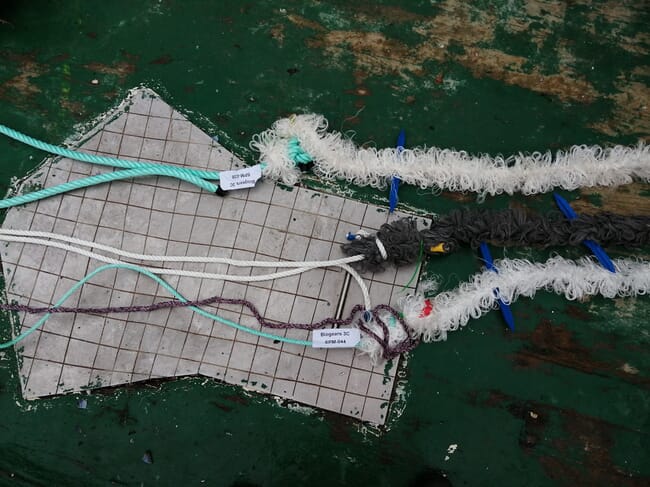
© BIOGEARS
In June 2021, the BIOGEARS project finalised its prototype biobased ropes, which were manufactured at project partner Itsaskorda’s facility in the Basque Country, Spain. Three prototypes were developed, all comprising of biobased material.
The next phase of the project involves trialling the use of the biogears in mussel and seaweed integrated multi-trophic aquaculture (IMTA) in offshore and sheltered marine areas. These trials began in July 2021 at AZTI’s experimental longline facilities sited in the Bay of Biscay and AZTI’s experimental raft, sited in Mutriku.
In preparation of the sea trials, mussel juveniles (approximately 5 mm) were machine seeded onto the experimental ropes (two biogears and one commercial counterpart manufactured by Itsaskorda). The seeded ropes were deployed onto the raft, where they will remain until September 2021. After this period, they will be deployed on a 120m length longline, submerged 2 metres below the sea surface, with 1 metre between ropes.
Seaweed (Codium spp) was also successfully seeded onto the biogears ropes at CTAQUA’s aquaculture lab facilities. As a result of collaboration with CTAQUA and Access2Sea project, hatchery trials will be performed inland too. The seaweed seeded biogears will be deployed alongside the mussel culture in longline and raft systems after January 2022.
The IMTA systems, including co-culture of mussels and Codium spp, will be running until the end of July 2022, which will represent one production cycle per each species. During the experimental period, the mussel growth, condition index, biochemical composition and presence of microplastics will be monitored.




